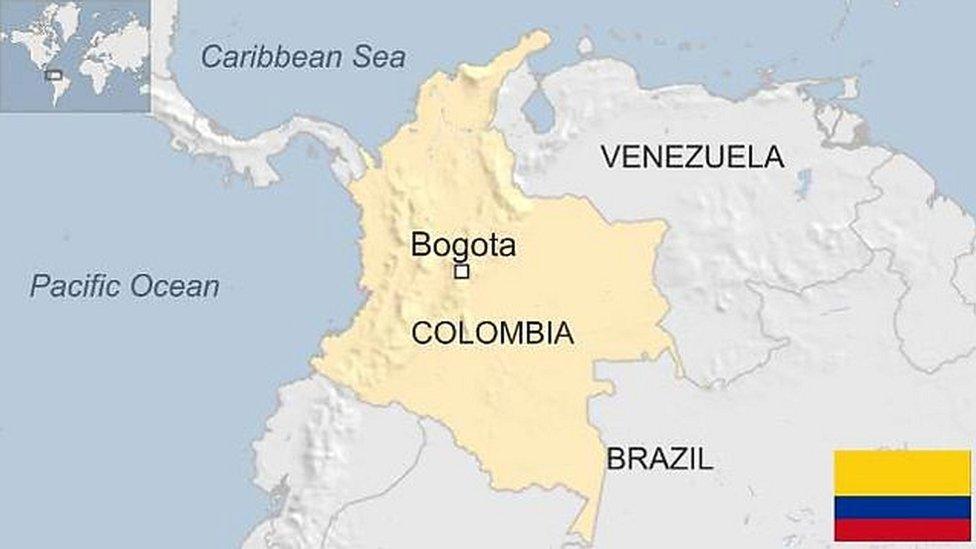Colombia ELN hostage release plans disputed
- Published
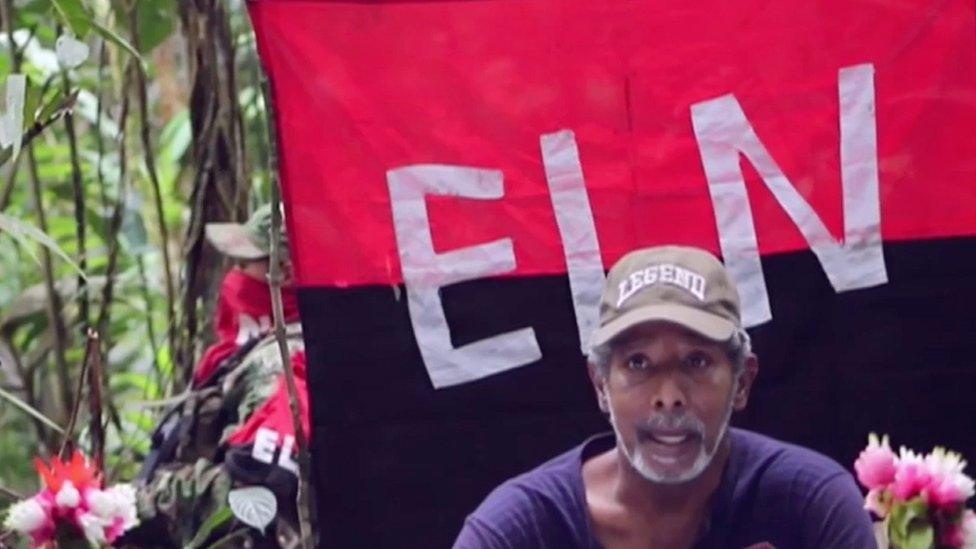
Mr Sanchez, believed to be the ELN's last hostage, appeared in a video on Colombia's RCN TV channel on Wednesday
The second-biggest rebel group in Colombia has clashed with the government over when to release a hostage whose freedom is a key condition for peace talks.
Ex-congressman Odin Sanchez has been held by the National Liberation Army (ELN) since he offered to swap places with his ailing brother in April.
President Juan Manuel Santos said Mr Sanchez had to be released before peace talks could start in Ecuador.
The ELN has reacted angrily.
Chief negotiator Israel Ramirez, also known as Pablo Beltran, accused the government of changing its requirements "at the last minute".
"This gentleman will be released during the first round of talks," Mr Beltran told a Colombian radio station. "That is what we committed to do."
On Thursday the Red Cross and Roman Catholic Church began working with the guerrilla group to release Mr Sanchez but it was not clear when the operation would finish.

Who are the ELN rebels?

The group has been fighting the Colombian state for more than five decades
Full name: National Liberation Army
The guerrilla group was founded in 1964 to fight Colombia's unequal distribution of land and riches, inspired by the Cuban revolution of 1959
Over the decades, the group has attacked large landholders and multinational companies, and repeatedly blown up oil pipelines
To finance itself it has resorted to extortion, kidnappings and drug trafficking
It has been strongest in rural areas

When Mr Ramirez was interviewed on Blu radio station, he refused to be drawn on how many hostages the ELN still had, saying only that the numbers were "very few".
Mr Sanchez had been thought to be the last. He handed himself over to the rebels in April in exchange for the release of his brother Patrocinio, a former governor of north-western Choco province, held by the rebels for almost three years.
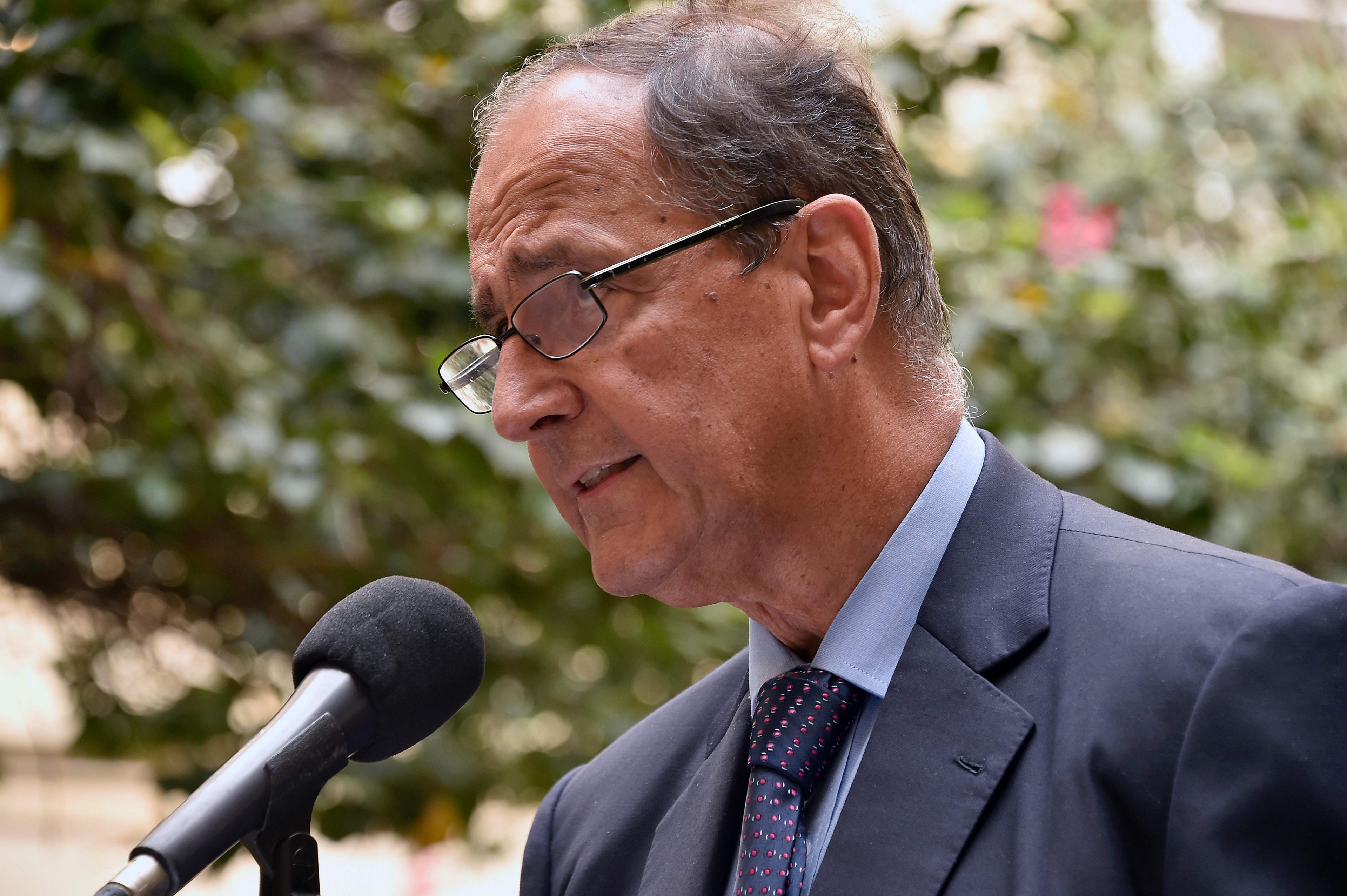
Juan Camilo Restrepo reaffirmed the government's commitment to peace talks with the ELN
The government is struggling not only to salvage the peace talks with the ELN but also a deal struck with Colombia's largest rebel group, the Revolutionary Armed Forces of Colombia (Farc).
The Farc and the government signed a peace deal last month but the agreement was rejected by Colombians in a popular vote on 2 October.
More than 260,000 people have died in Colombia's armed conflict which has pitted left-wing rebels against right-wing paramilitaries and the security forces.
- Published17 October 2016
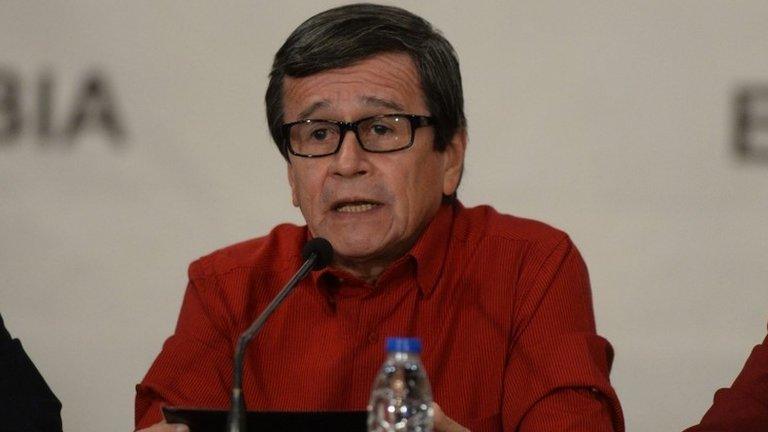
- Published11 October 2016
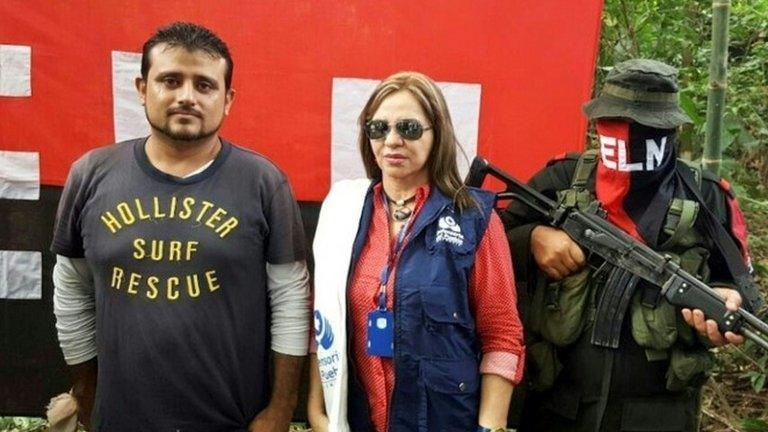
- Published3 October 2016
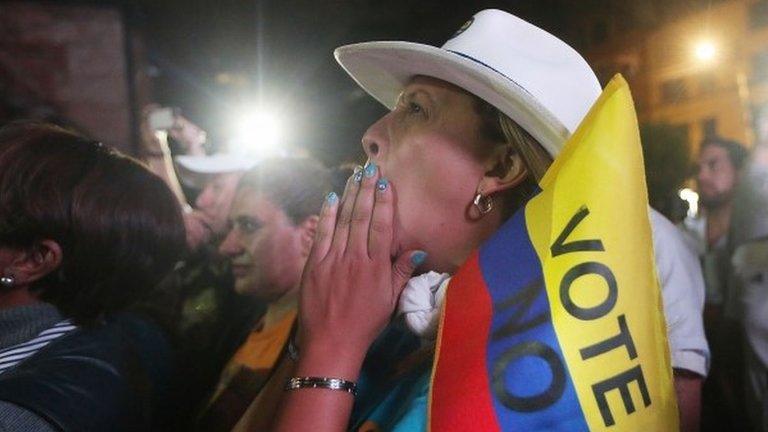
- Published14 February 2023
